Highlighting Australia
- As a proudly Australian initiative, we’re excited to showcase a collection of Australian stories, music, tributes and more.

Join activities, celebrations, study groups, spiritual empowerment and education programs for young people, and more.
Baha’i beliefs address essential spiritual themes for humanity’s collective and individual advancement. Learn more about these and more.

Featured in: Study Circles & Study Materials
A study circle is a small group that meets to study the course materials from the Ruhi Institute. This collection contains resources related to study circles, as well as resources to assist anyone with deepening their understanding of the Baha’i Writings.

Abdu’l-Baha listed memory as one of the five spiritual powers that we possess, and as Baha’is we are encouraged to memorize the Baha’i Writings. We know that using God’s word in its purest form is what really touches the souls, and it’s also a good way to ensure that the Word of God is with us at all times.
For many of us however, memorizing the Writings can be a struggle, and the different methods of memorization work differently for different people, so I’ve listed seven ways which may help you memorize the Baha’i Writings:
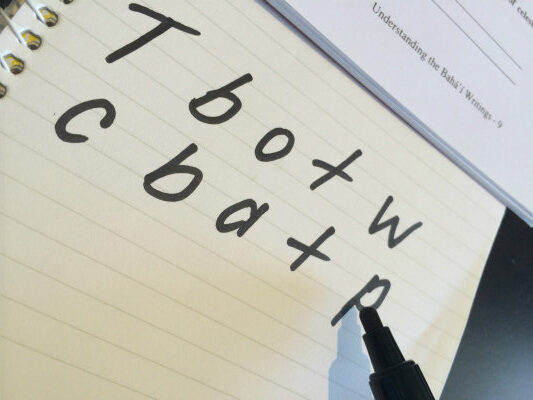
On a separate piece of paper or on a white board, write down the first letter of each word in the quote but space them apart as though they were separate words. “The betterment of the world…” for example, becomes “T b o t w…” Use the letters to jog your memory when trying to recall the quote. If it is too difficult with only one letter to help you, you can try writing down the first two letters (“Th be of th wo…”), then progress to one letter until you can eventually do it without any letters at all.
This works best AFTER you have already familiarized yourself with the quote by reading it several times. The letters help to strengthen the “recall” function in your brain – this exercise is not intended to be a guessing game!
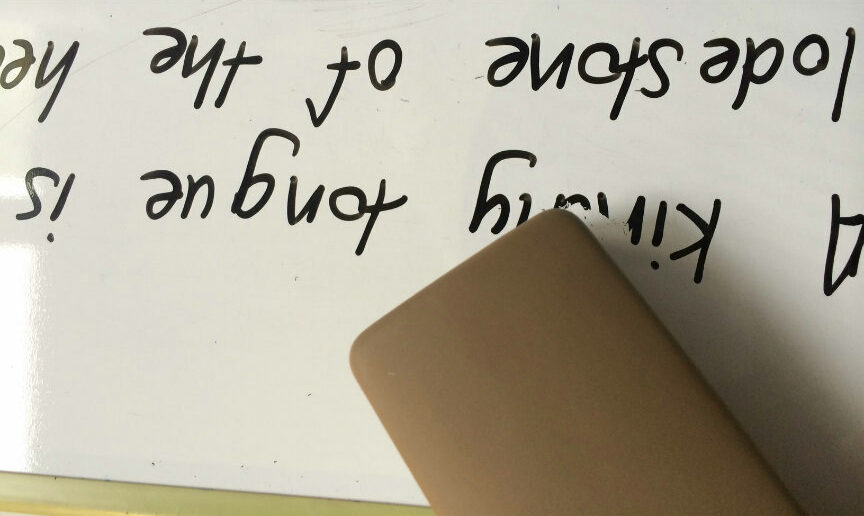
Write the full quote on a whiteboard. In a group, take turns reading the quote aloud but after each reading, erase one word of that person’s choosing. In the quote, “A kindly tongue is the lodestone of the hearts of men…” for example, the first person in the group may choose to erase the word “kindly” so the second person reads the quote as “A ________ tongue is the lodestone of the hearts of men…” After the second person has read the full quote, they choose to erase a different word such as “lodestone”, so that by the time the third person is reading the quote, it looks like: “A ________ tongue is the ________ of the hearts of men…”
Keep doing this until there are no words left and only blank spaces and you are reciting the quote without reading it at all.
The repetition and gradual staggering of the memorization means you are essentially memorizing one word at a time, making the process much easier. If the quote is particularly long, you can erase two words at a time.
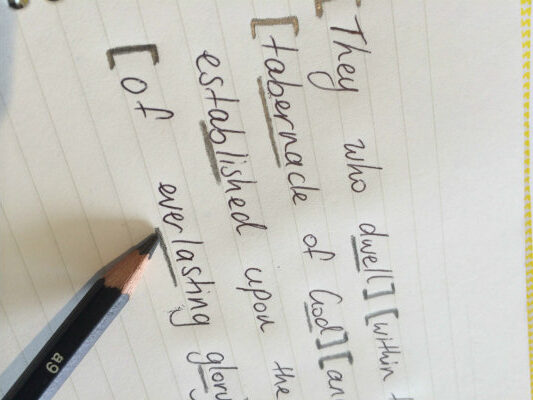
Our working memory is limited to learning approx. 5-7 items at a time. A good way to utilize this limitation is to “chunk” parts of a quote together rather than learning each word separately. The quote “They who dwell within the tabernacle of God, and are established upon the seats of everlasting glory…” can be broken down into more sizable chunks of information that are easier to digest: “They who dwell / within the tabernacle of God / and are established upon the seats / of everlasting glory /…”
In each of the chunks, there is usually a “key” word (underlined in the example) that will help to fix the phrase into your memory. This way, you can create a mental association for each phrase to help you recall each chunk. You can then take turns in a group saying each of the chunks in the quote until you’ve eventually committed it to memory.
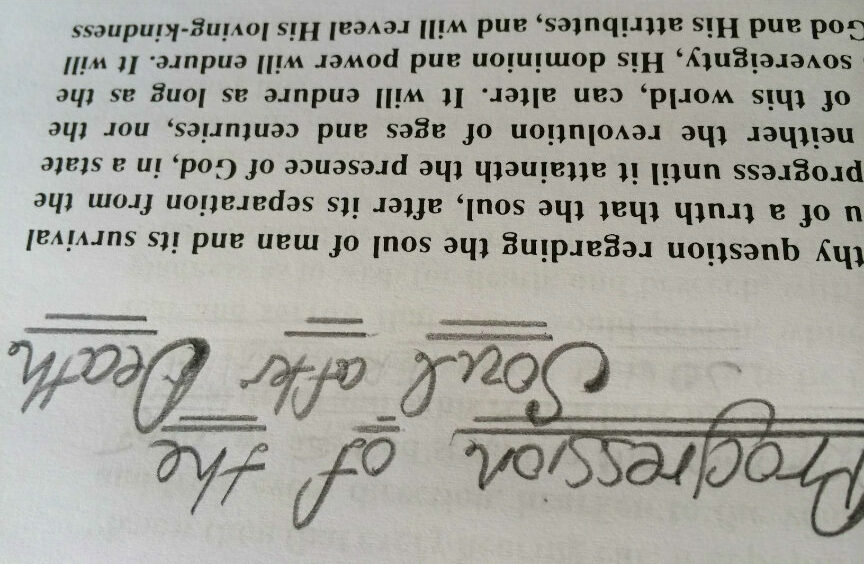
Our brain remembers better when information has a context or a framework. Someone trying to memorize a list of food items, for example, would have better chances if the list came with a context such as “Ingredients for a Chocolate Cake”.
In the same way, we should give the quotes we are trying to memorize a context so our brain knows how and where to file the information. The best way of giving it a context is to give it a title and to write it above the quote you are trying to learn. The title should be as specific as possible and relate to what you find important within that quote.
For example, the quote “O Son of Light! Forget all save Me and commune with My spirit…” Giving this quote the title “Hidden Words” is perhaps too vague to assist your memory. A title such as “Forgetting the things of this world when praying” for example, would be more useful.
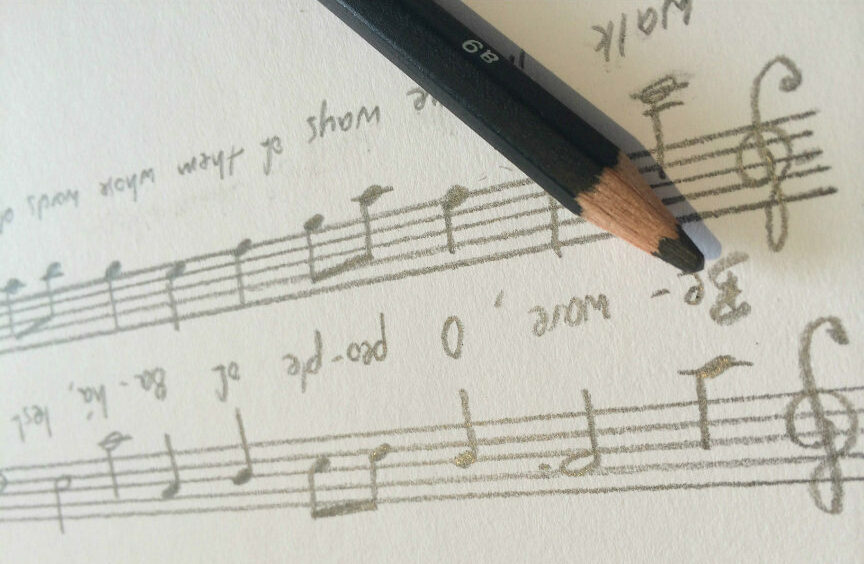
Those who are musical, creative or simply brave enough have no qualms about composing a melody to learn or recite a quote. If you are more challenged in this area, then sing the quote to a jingle or tune you already know. The melody you choose will depend on the “rhythm” of the text, so some melodies are more suitable than others.
The quote “Beware, O people of Baha, lest ye walk in the ways of them whose words differ from their deeds” for example can be sung to the tune of “Somewhere Over the Rainbow”.
Keep in mind that the purpose of this method is to help you commit the quote to memory, not necessarily to perform it!

This is ideal for kinesthetic learners but is effective for most people and a fun group activity. The group (or each person in a group) comes up with an individual hand or body action for the main words in the quote (usually every 2nd or 3rd word) and as the group recites the quote together, you simultaneously perform the corresponding actions. The actions help to fix the words into your memory but again, the goal is to be able to eventually say the quote without them.

The majority of people are visual learners so using simple drawings is a useful tool. Write the quote out onto a separate piece of paper leaving room above the words for a small picture. For each of the key words or chunks (see above), draw a SIMPLE illustration or a symbol that embodies that word or idea. In the end you should have a series of small pictures almost like a strip of hieroglyphs that will help you recall the quote later by giving you a mental image of the words.
I hope some of these methods help you in your efforts to memorize the Baha’i Writings. You can also read an older Baha’i Blog article called 5 Tips to Help You Memorize the Writings which may also help you in your memorization adventures.
"*" indicates required fields

We recognise their continuing connection to land, waters and community. We pay our respects to Aboriginal and Torres Strait Islander people and their cultures; and to elders both past and present.
The views expressed in our content reflect individual perspectives and do not represent authoritative views of the Baha’i Faith.

Visit the site of the
Australian Baha’i Community
and the Baha’i Faith Worldwide
Notifications
Some of us were discussing the difficulty that many people have memorizing quotations. These suggestions are very welcomed and useful. I’ll share them with others. Thank you!
Judith (April 4, 2015 at 1:16 AM)
good advice. I also associate sounds into bundles.
For ex.
Potent thou art to do what pleases thee. (Notice the PPs)
No one can withstand Thy will (ww)
Nor thwart thy purpose. (RR)
Lawrence Allen (April 4, 2015 at 2:30 AM)
Thanks!
Margaret S McLane (July 7, 2023 at 3:05 AM)
1. Pray for help. When some youth said the Remover of Difficulties (or another prayer) before memorizing, they found that they memorized faster, that it was easier and they were happier!
2. Create logical patterns. This is part of creating context. Sometimes, it is possible to create patterns. For example: “to keep me safe by Thy bounty and Thy grace. Enable me, then, to return to my home by Thy power and Thy might.” The two endings could become confused, but by remembering that b and g (bounty and grace) come before p and m (power and might) this is resolved. Or: In the prayer, “O God, O Thou Who hast cast Thy splendor over the luminous realities of men…”, there can be confusion over “created things” in the first paragraph and “created beings” in the second; this is resolved by thinking “things” come before “beings”. There are other examples but these are easier to explain.
3. Devotional gatherings (or the opening of meetings, activities) where memorized prayers and quotes are requested and encouraged. This helps with the recall and also in creating a culture of memorization (and reduces concern over perfection, if people are encouraged to share as much as they remember – even if incomplete).
4. Stories of wonderful souls like Hand of the Cause Khadem who had a spectacular memory. This makes shorter passages appear less daunting! 🙂
Nica Treadwell (April 4, 2015 at 2:57 AM)
I love this post, and here is a quote from the Bab that tells us why we should memorize!
“Every hand which setteth down His Words with true faith shall be filled by God, both in this world and in the next, with things that are highly prized; and every breast which committeth His Words to memory, God shall cause, if it were that of a believer, to be filled with His love; and every heart which cherisheth the love of His Words and manifesteth in itself the signs of true faith when His Name is mentioned, and exemplifieth the words, “their hearts are thrilled with awe at the mention of God”,1 that heart will become the object of the glances of divine favour and on the Day of Resurrection will be highly praised by God.”
Selections from the Writings of the Báb, p. 15)
Saba (September 9, 2015 at 7:56 PM)